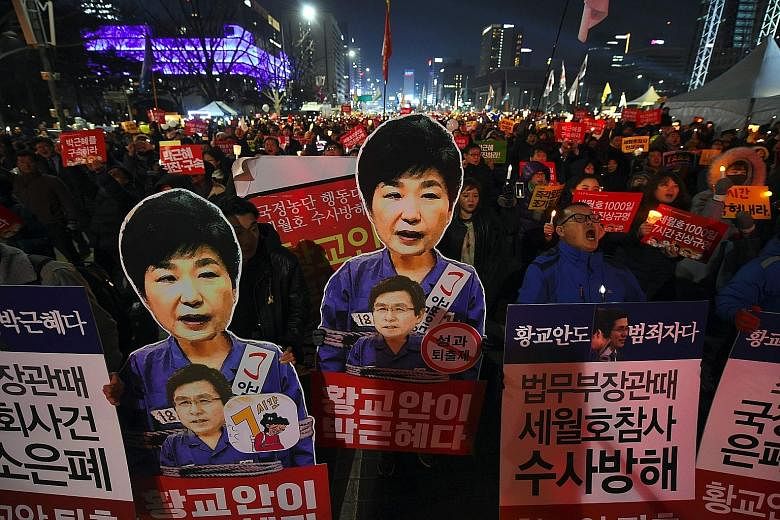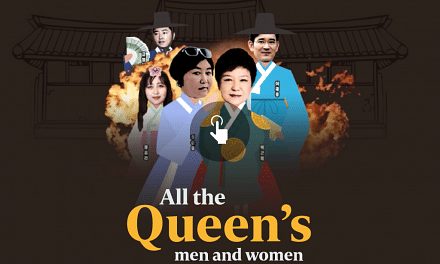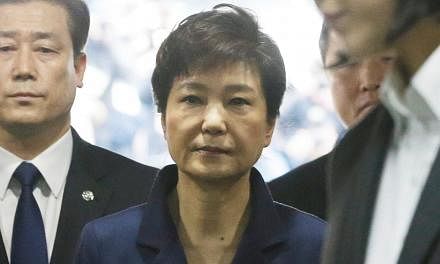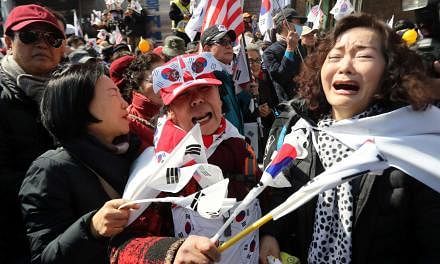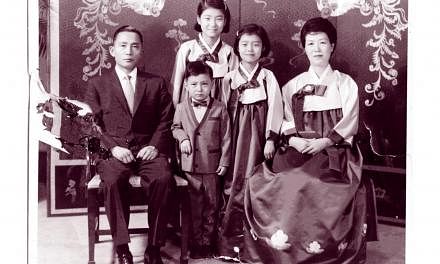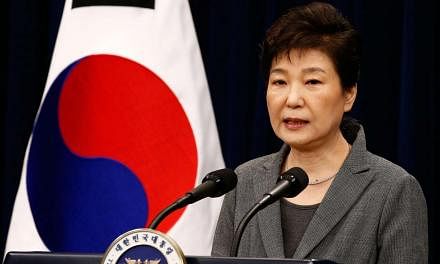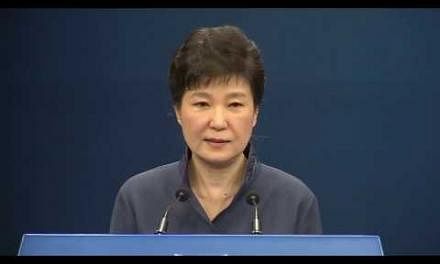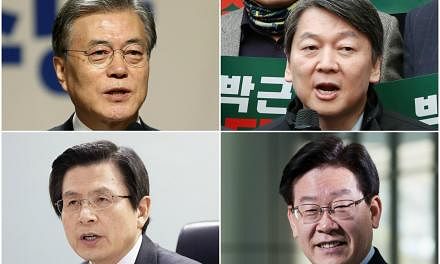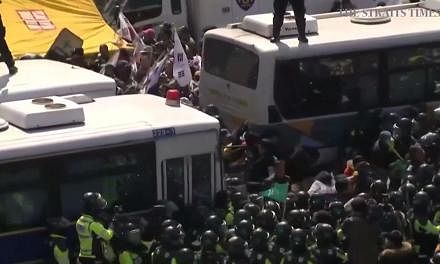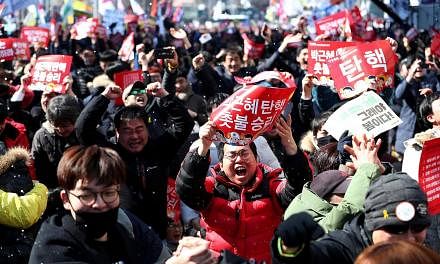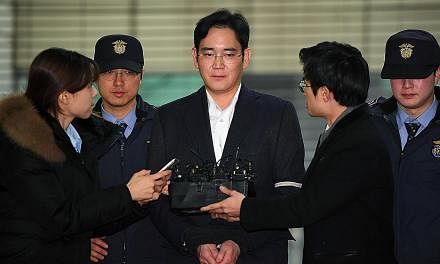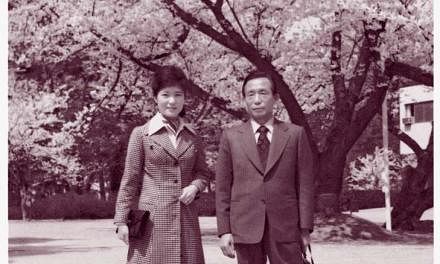Even as a scandal that would lead to her downfall started to unravel late last October, President Park Geun Hye proposed changing the Constitution to let presidents serve more than one term and allow for greater continuity in policymaking.
She said South Korea's one-term, five-year presidency - introduced in 1987 to prevent dictatorships - is akin to "clothes that no longer fit our body", but critics accused her of trying to deflect attention from the scandal.
Now, as the Constitutional Court mulls over whether to endorse a parliamentary vote passed last month to impeach Ms Park, her proposal to review the presidency is ironically being debated in political and academic circles.
A special bipartisan panel of 36 legislators met in Parliament last Thursday for the first time to discuss how to revise the Constitution, amid a growing consensus that it is necessary to limit the president's powers.
"The Constitution, last revised in 1987, is outdated to a degree that it resulted in what we call an imperial presidency system," political scientist Kim Jae Chun from Sogang University told The Straits Times.
"Many people, including myself, believe some kind of constitutional amendment is necessary. The president has too much governing power, the Congress has no say. That's why the scandal erupted - there are not enough checks and balances."
Ms Park has been suspended over allegations that she colluded with her friend Choi Soon Sil to extort money from conglomerates.
Some have suggested switching to a semi-presidential system like that in France, to divide responsibilities between the president and prime minister; others prefer a United States-style system that allows a four-year, two-term presidency.
Political reform could become a hot-button issue in the next presidential election - expected to be held before August if the court upholds Ms Park's impeachment.
Most of the potential candidates, including the main opposition Democratic Party's Mr Moon Jae In, Mr Lee Jae Myung and Mr Park Won Soon, have voiced support for change.
Former United Nations chief Ban Ki Moon has backed minor opposition People's Party's presidential hopeful Ahn Cheol Soo's proposal to revamp the parliamentary system to break the domination of major parties, in what is seen as a sign they may join forces in the election.
With Mr Moon leading in various polls, analysts say Mr Ban, a career diplomat deemed a newcomer to local politics, will need to do something radical to boost his chances.
Professor Kim would advise Mr Ban to pledge to shorten his term to three years, so the next presidential polls could synchronise with the parliamentary elections due in 2020 and set the stage for change.
A recent poll by Hankook Research shows 71.1 per cent of 1,000 respondents wanted change. Out of those who wanted change, 38.5 per cent preferred a US-style presidency, 33.9 per cent were for a French- style semi-presidential system and 13 per cent for a parliamentary Cabinet system like Japan's, while the rest opted for other systems.
Washington-based political scientist Balbina Hwang argued that allowing consecutive terms, like in the US, will "completely politicise the... presidency" from day one.
South Korea needs a leader with absolute control over the government and military, in case of national security threats from the North, she said.
"Any structural changes to the political system to... 'rein in' the power of the president will absolutely cause (the) political system to be paralysed and devolve in destructive political partisanship."
